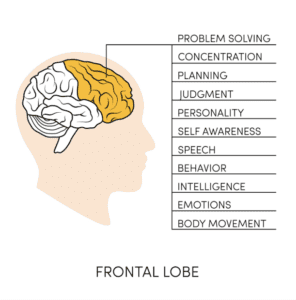Parents and students may have heard the term “growth mindset” from their school counselors or seen it printed in an academic handout. Naturally, some of you may be asking why it matters and what it has to do with learning academics. The concept of a growth mindset was first introduced by renowned Stanford psychologist, Carol S. Dweck, Ph.D. and she writes about it in her book Mindset: The New Psychology of Success. The philosophy is a person’s mindset or belief about themselves determines their level of success across all areas of their lives, academics, at work, sports, and the arts.
In defining a growth mindset, Dweck (2015) states, “people believe that their most basic abilities can be developed through dedication and hard work—brains and talent are just the starting point. This view creates a love of learning and a resilience that is essential for great accomplishment.”
At Effective Students, our academic coaching is designed to instill grit, address learning differences, teach emotional regulation, and improve executive functioning – these are important areas with respect to developing a growth mindset for kids. Take a look at the following examples of growth mindset below.
The Relationship Between Growth Mindset & Grit
A growth mindset and grit walk together like identical twins, sometimes it’s hard to distinguish one from the other. As you may recall, grit is the ability to persevere when things become difficult. A growth mindset is similar but maybe the firstborn twin, as the mindset comes first and the grit is shown and built by adversity.
How Growth Mindset Impacts Learning Differences
Students with learning differences like ADHD, dyslexia, dysgraphia, and others, understand at their core that learning for them is difficult. With researched-based instruction and the right support, students learn to apply specific strategies to find success. The students who succeed in the long term and have the best opportunities for success believe that they can – in other words, they have a growth mindset. When students with learning differences persevere to tackle an academic demand, they develop the grit to succeed and realize they can overcome such challenges.
Growth Mindset vs Fixed Mindset
Conversely, a fixed mindset is when a person believes that their intelligence or capabilities are fixed and cannot be developed. Parents may have heard this from their students and it can sound like this, “I’m just not good at math”, “Reading is not my thing”, or “I’m just disorganized”. These are examples of a fixed mindset. What do you think are the feelings behind these beliefs and how did they happen? Experience is a great teacher, both positively and negatively. But the good news is that mindsets can be changed.
How Growth Mindset Affects Emotional Regulation
Emotional regulation or control is one of many executive functions and we define it as the emotional response to a situation. Emotional control is responding to information in proportion. For example, a big problem necessitates a big response – whereas a little problem necessitates a little response. Even better – a big problem necessitates a controlled response.
Adolescence is full of examples of teens being emotionally irregular. Scroll through social media and you’ll find parents lamenting about it. Young adults experience the full spectrum of emotions as they start to discover who they are – one day they’re happy one day, and the next day they’re grumpy. Promoting a growth mindset for students during this time is a powerful way for teens to shape their experiences to learn from them. They are bound to make mistakes and if framed in a healthy way, failure can be useful.
If you’re a fan of Sarah Blakely, you may recall a story of her father asking her nightly where she had failed that day and what she learned from it. What a powerful example of a growth mindset! If you don’t know Sarah Blakely, look her up! She’s one of my idols!
If a young person has a fixed mindset, they may interpret their choices as defining them and their future. I don’t know about you, but I’m glad my teen years are over!
The Relationship Between Growth Mindset and Executive Functions
The relationship here can best be described as synergistic. Just as executive functioning skills can be built, so can a growth mindset and they are almost interdependent. They involve the frontal lobe, the brain which controls emotions, problem-solving, planning, and prioritizing. Here is an image that may help you visualize this process in detail:
The Absence of a Growth Mindset for Students
So, what happens when students do not have a growth mindset? Or if they have a strong reaction to failure? Are they afraid of how their parents react? Embarrassed to let their peers know? Instead of these responses, it’s more constructive to consider what would happen if they became curious about what went wrong – that’s the foundation for developing a growth mindset for kids.
Students can learn to make changes to their preparation or engagement when they have a safe place to reflect on what happened and think through alternative responses. This exercise creates:
- Self-awareness
- Self-governance
- Metacognition
- Grit building
As we say, awareness is the beginning of learning.
How to Develop a Growth Mindset with Academic Coaching
If your student is struggling to develop a growth mindset, grit, or resilience or even struggles with a learning difference like ADHD or dyslexia, Effective Students offers tailored academic coaching to help. Just as athletic coaches help players improve their skills in a specific sport, academic coaches do the same, just in the education space.
Encouragement? Yes.
Tips and tricks? Yes.
Training on skills? Yes.
In light of the learning loss and emotional responses to the pandemic, getting help is important. If we as parents didn’t already know this, “A new study from Stanford Medical School found that around the age of 13, children no longer find their mothers’ voices “uniquely rewarding.” but that is a topic for another day. Just as your kids are learning to persevere when things are tough and become confident they can get better, we can do the same as adults. And you’ve done just that – by learning about a growth mindset. Well done!
References
Boston Public Schools
https://www.bostonpublicschools.org/Page/5471
Mindset Health
https://www.mindsethealth.com/matter/growth-vs-fixed-mindset
Connections In Mind

